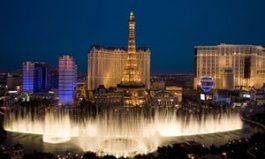Environmental Issues in Las Vegas
There’s nothing like the elation you get from flipping the switch on a new, record-breaking renewable energy plant.
But amid all the pomp and circumstance, it can be easy to forget the difficult path even the most “green” energy projects must tread before they become reality.
A few years ago, residents and environmentalists rarely objected to clean energy development in their hometowns. But as the country prepares for massive growth in the number of renewable energy installations, environmental lawyers say there are rumblings from various groups about where these electric plants are located and whether the benefit of the emission-free electricity is worth the environmental price.
“In general terms, I would say there is no project of any kind anymore in energy or any other major development that doesn’t come under a great deal of scrutiny from interested individuals or special-interest groups, whether environmentalists or residents, ” said former Nevada Gov. Bob List, now an environment and energy attorney with the law firm of Armstrong Teasdale. “I think that renewables are no exception to that.”
That’s because for all their “green” credentials no renewable energy project is without its environmental drawbacks and community effects.
Hydropower and the dams that come with them interrupt the natural flow of rivers and the migration and breeding of native fish; geothermal plants require water and their exploratory drilling sometimes damages the land; modern wind farms kill migratory birds and bats and kick up dust during construction; utility-scale solar photovoltaic arrays are made from sometimes toxic or unsustainably mined materials and require vast expanses of land formerly open to native animals; and solar thermal plants face the same land use issues as solar PV but also can’t operate without a good deal of water.
On top of that, some wildlife biologists and environmentalists say the new transmission lines that would bring the electricity from planned electric plants to big cities such as Las Vegas often crisscross major migration routes for endangered species, destroying vegetation and affecting grazing and mating routes.
“People are beginning to realize there are some problems associated with all these renewable energy sources and maybe we haven’t really thought them through like we should have, ” said Mark Stermitz, an environmental lawyer with the law firm of Glaser Weil Fink Jacobs & Shapiro.










